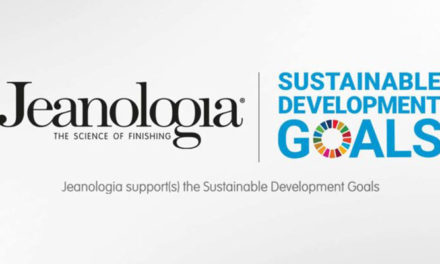 Fashion giant Inditex is donating another 8.5 mn euro ($9.4 mn) to the Caritas charity to support social employment and circular economy initiatives in Spain. The company, which owns Zara and is the world’s biggest fashion group, said the money would be used on job creation for vulnerable sections of society and the collection of clothing for recycling and reuse. Inditex’s Executive Chairman, Pablo Isla, and Caritas’s President, Manuel Bretón, made the agreement to extend two existing collaboration agreements for three years.
Fashion giant Inditex is donating another 8.5 mn euro ($9.4 mn) to the Caritas charity to support social employment and circular economy initiatives in Spain. The company, which owns Zara and is the world’s biggest fashion group, said the money would be used on job creation for vulnerable sections of society and the collection of clothing for recycling and reuse. Inditex’s Executive Chairman, Pablo Isla, and Caritas’s President, Manuel Bretón, made the agreement to extend two existing collaboration agreements for three years.
The social employment programme, previously supported by 11.5 mn euro ($12.75 mn) in funding by Inditex since 2011, has already helped more than 2,500 people at risk of social exclusion in Spain to find work. The new agreement also provides a fresh boost to the installation of clothing collection containers across Spain, adding to the 1,800 already placed nationwide since 2016, enabling the collection of more than 48,000 tonnes of clothing for charity or recycling.
Inditex’s Executive Chairman, Pablo Isla, singled out the collaboration as “one of the Group’s most important initiatives on account of its social impact and environmental relevance”.
Isla said the employment programme had generated “2,500 examples of hope, tenacity and new horizons for families”, while the environmental initiative was “the best example of a circular economy initiative in the textile sector anywhere in the world”.
Bretón, for his part, said Caritas’s social economy efforts “will continue to help us foster a society based on the promotion of human rights, dignity, cooperation and justice, framed by care and respect for the environment”.
Under the terms of the extended agreement, Inditex will channel, via Caritas, 5 mn euro ($5.5 mn) to promote job access for the least privileged in Spain through social economy, skills training and entrepreneurship support initiatives between now and 2022.
Inditex has also pledged to contribute 3.5 mn euro ($3.9 mn) to install 300 new on-street clothing collection containers in Spanish cities, improve traceability, and raise the profile of Caritas’s second-hand clothing stores.
Clothing and shoes that can be reused are donated free of charge to people being attended to by Caritas or are sold in the NGO’s stores, raising money for charity. Products that cannot be reused are sent for recycling, preferably for the regeneration of high-quality fibres which can be used to make new garments.
 Fashion giant Inditex is donating another 8.5 mn euro ($9.4 mn) to the Caritas charity to support social employment and circular economy initiatives in Spain. The company, which owns Zara and is the world’s biggest fashion group, said the money would be used on job creation for vulnerable sections of society and the collection of clothing for recycling and reuse. Inditex’s Executive Chairman, Pablo Isla, and Caritas’s President, Manuel Bretón, made the agreement to extend two existing collaboration agreements for three years.
Fashion giant Inditex is donating another 8.5 mn euro ($9.4 mn) to the Caritas charity to support social employment and circular economy initiatives in Spain. The company, which owns Zara and is the world’s biggest fashion group, said the money would be used on job creation for vulnerable sections of society and the collection of clothing for recycling and reuse. Inditex’s Executive Chairman, Pablo Isla, and Caritas’s President, Manuel Bretón, made the agreement to extend two existing collaboration agreements for three years.












